For unknown reasons, but surely linked to religious beliefs, human beings tend to revere death more than life. Of course, that varies in each civilization and even in each people. Many great characters in history are only revered after they have left this world, instead of recognizing their worth during life. In many cases, when someone has passed away, he or she is remembered more on the day of passing away than on the day of their birth.
I do not share that practice. That is why in my writings I have referred to some personalities, which I have admired and who have served as inspiration and support for my precepts, on the day of their birthday, more than on the day of their death. It is a way of feeling that they are alive. Thus, I remembered Fidel Castro’s 90th birthday in August 2016, without knowing that only 3 months later he would be gone forever. Likewise, I made a special remembrance of the life of Nelson Mandela, also on his 90th anniversary in 2008.
Now I want to remember a great person from Our America, prematurely disappeared in 2013 when he was barely 65 years old. Soon, in May, we will remember the 10th. anniversary of the departure of Javier Diez-Canseco, but I prefer to evoke it today, taking advantage of the fact that, if we still had him with us, this Friday, March 24, he would be 75 years old.
Javier stood out as a writer, but his true vocation was politics. For several decades he was the main referent of the Peruvian left, representing the popular sectors for three periods as a congressman, two as a senator and one as a deputy. He was also elected deputy to the Constituent Assembly from 1978 to 1980.
From very early on, when he was a law student at the Universidad Nacional Mayor de San Marcos, he adhered to socialist and revolutionary ideas, later he went on to study sociology at the Catholic University of Peru, becoming elected president of the Federation of Students of that house of studies. Since then he began his “marriage” with the humblest people, whom he never abandoned.
In 1985 he was elected senator for Izquierda Unida, being re-elected in 1990. But his mandate was paralyzed when Alberto Fujimori’s dictatorship was established in 1992. Then, Javier became one of the fiercest opponents of the autocracy imposed on his country. In 1995 he was again elected congressman for Izquierda Unida and re-elected in 2001. In those years, Javier, who had always been a member of the Unified Mariateguista Party (PUM), founded the Socialist Party of Peru and was its presidential candidate in 2006.
In a letter published in September 1987, Javier explained that mariateguismo was “the fruitful encounter of Marxism and the nation, affirming that the proletariat is the ruling class destined -at the head of a broad popular bloc- to solve the serious national problems that the ruling classes have never been able to tackle.
In his parliamentary function, Diez-Canseco stood out for his inveterate honesty and his unwavering rectitude in defense of popular interests, particularly minorities and the most excluded; for his sustained fight against corruption and drug trafficking and for his indomitable denunciation of people linked to both State institutions and terrorist organizations that committed human rights violations.
Javier valued the importance of “direct elections” as a mechanism of democracy but did not consider that this was the main form of popular participation. He understood that “direct democracy” was the main democratic mechanism. In this regard, he was of the opinion that “the political decision and the election of leaders in each street and in each neighborhood, in each city and important region, in each factory and in each production center […] and at higher levels, up to the national level”… Direct suffrage must also have a certain weight.
His enemies did not rest until in 2012 they prospered the false accusation of violation of the Code of Parliamentary Ethics, a lie denied by the report of the Technical Secretariat of the Congressional Commission created to evaluate said accusation. He was fraudulently suspended from his duties for 90 days, but said measure was annulled by the Justice, which thus resolved an amparo filed by Javier in defense of his honor and dignity. At the time of his unfair sanction, he was president of the Foreign Relations Commission of the Peruvian Congress.
Today, when the right wing and the empire once again defeat the Peruvian people, the thought and action of Javier Diez-Canseco are fully valid. He seems to be looking at what is currently happening when, in January 1992, analyzing the way in which neoliberalism degraded Peru, he stated: “The country faces the strictest and most rigid application – that I believe has been recorded in Latin America – of the plans of the International Monetary Fund and the World Bank. The management of the Ministry of Economy corresponds to the management of a consul or ambassador of the Monetary Fund or the World Bank. Even the country’s official figures are readjusted according to the calculations made by international organizations and not according to the calculations of the Ministry of Economy and Finance or the Central Reserve Bank…” and later added: “The implemented neoliberal program shares the traits of almost all those running in Latin America; it is a program clearly aimed at privatizing the economy and reducing the role of the State in the economy”. This was enunciated by Javier more than 30 years ago, unfortunately without any change since. That is the cause of the current mobilizations of the Peruvian people demanding democracy and the end of the neoliberal constitution.
In the course of his life, Javier was also deeply internationalist, in solidarity with the struggles for the liberation of the peoples of Our America such as El Salvador and Nicaragua, a staunch enemy of the national security dictatorships that affected the region in the 1970s and the 80s of the last century and a defender of the Cuban revolution. Diez-Canseco upheld the fight against capitalism, imperialism, colonialism and the unity and friendship of the peoples like few others, even beyond the region, as witnessed by the Palestinian and Saharawi peoples who had an active militant in favor of Javier of his cause.
Together with Fidel and Lula, he was a founder of the Sao Paulo Forum, probably one of his most important and least known legacies. But from its first meetings on, the forums agreements and resolutions had the imprint of the ideas, vision, and action of Javier Diez-Canseco.
Likewise, he was an active promoter in Peru of solidarity committees with Cuba, Vietnam, Chile, Argentina, Uruguay, Bolivia, Palestine, Nicaragua, El Salvador, Guatemala and the Saharawi Arab Democratic Republic (SADR). In the same way, he presided over the parliamentary friendship leagues with Cuba, the SADR and Algeria.
In January 2013, Javier became seriously ill and passed away on May 4 of that year. I visited him for the last time on the 1st of that month at the clinic where he was, without knowing that I would not see him again. He asked me about the recent departure of Commander Chávez and the impact that loss had caused in Venezuela. He continued to closely follow the Latin American reality and resented his inability to continue being a present political actor, as he had been throughout his life.








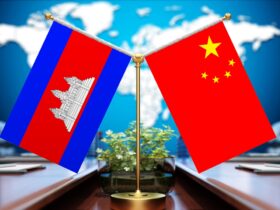

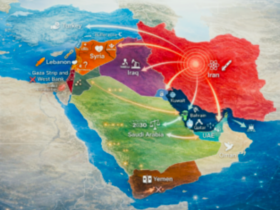
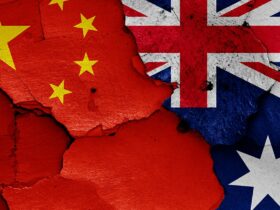

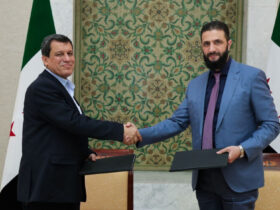
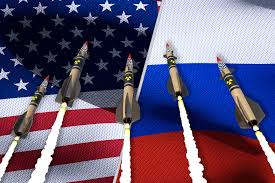
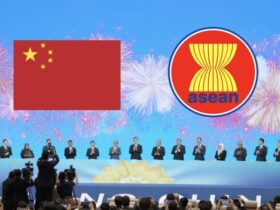

Leave a Reply